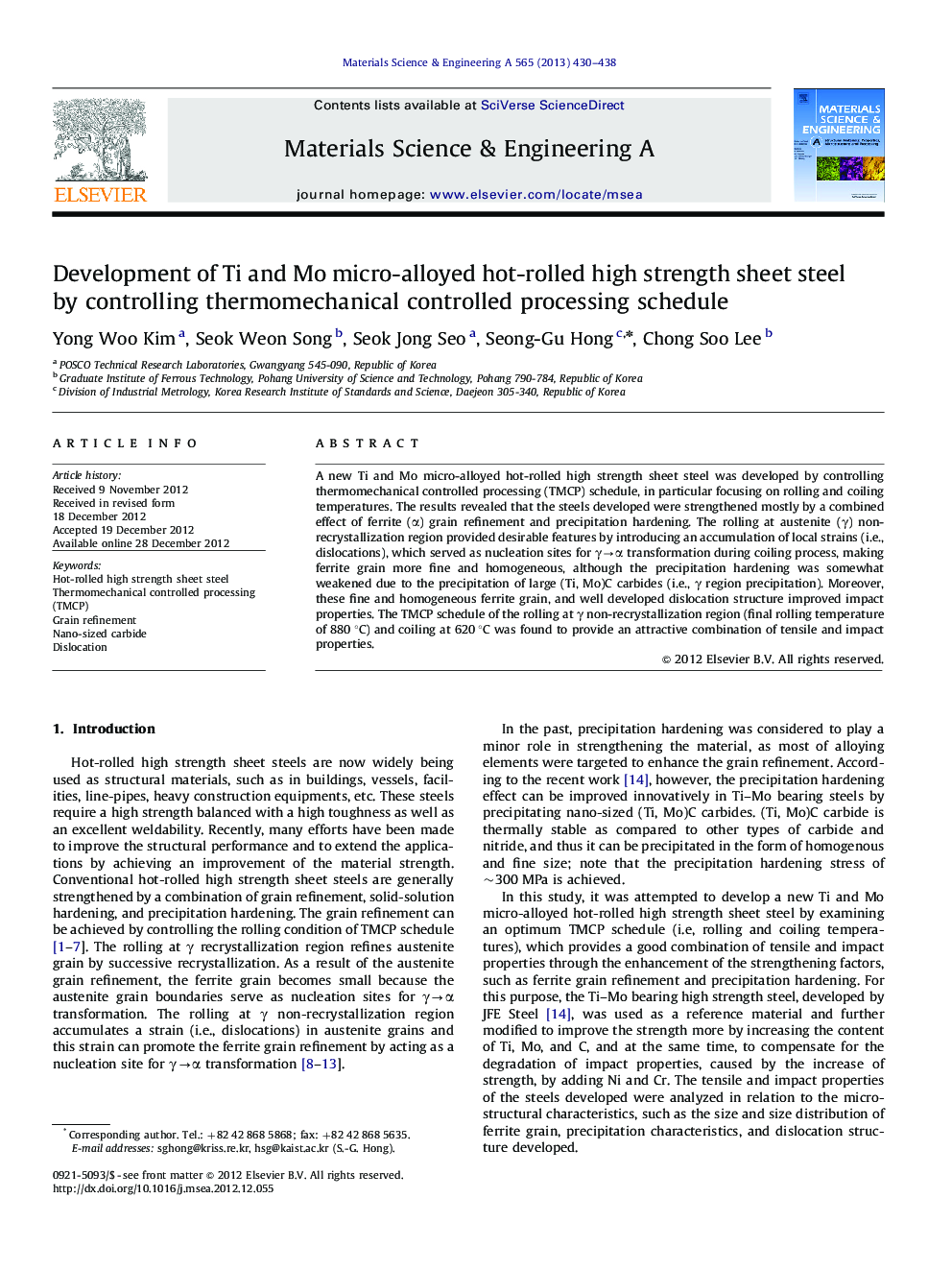| Article ID | Journal | Published Year | Pages | File Type |
|---|---|---|---|---|
| 1576577 | Materials Science and Engineering: A | 2013 | 9 Pages |
Abstract
A new Ti and Mo micro-alloyed hot-rolled high strength sheet steel was developed by controlling thermomechanical controlled processing (TMCP) schedule, in particular focusing on rolling and coiling temperatures. The results revealed that the steels developed were strengthened mostly by a combined effect of ferrite (α) grain refinement and precipitation hardening. The rolling at austenite (γ) non-recrystallization region provided desirable features by introducing an accumulation of local strains (i.e., dislocations), which served as nucleation sites for γâα transformation during coiling process, making ferrite grain more fine and homogeneous, although the precipitation hardening was somewhat weakened due to the precipitation of large (Ti, Mo)C carbides (i.e., γ region precipitation). Moreover, these fine and homogeneous ferrite grain, and well developed dislocation structure improved impact properties. The TMCP schedule of the rolling at γ non-recrystallization region (final rolling temperature of 880 °C) and coiling at 620 °C was found to provide an attractive combination of tensile and impact properties.
Related Topics
Physical Sciences and Engineering
Materials Science
Materials Science (General)
Authors
Yong Woo Kim, Seok Weon Song, Seok Jong Seo, Seong-Gu Hong, Chong Soo Lee,
